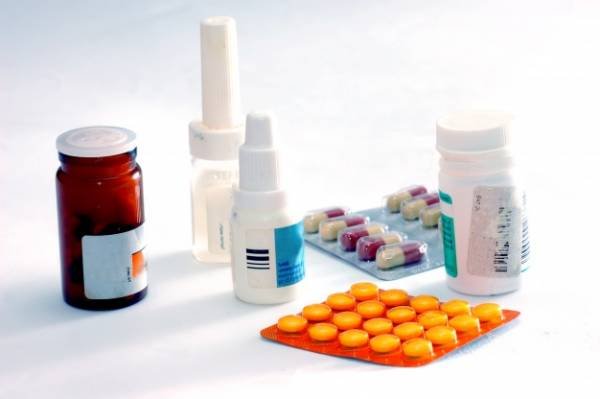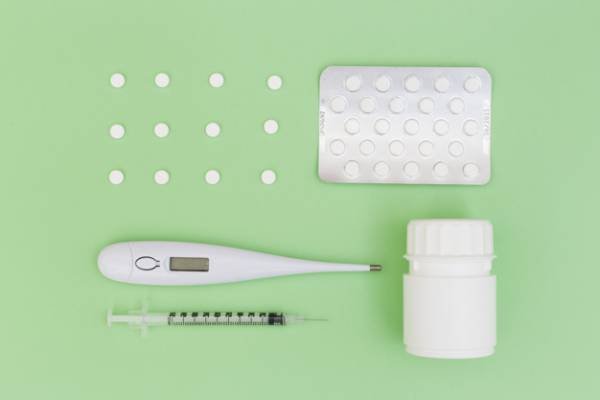ConditionsMedication storageat home with hygienic practices
Many of us keep various types of medications at home but are unaware of the dangers involved. Storing medications at home means they may be needed one day, and often the medications stored consist of leftover doses that were not fully consumed. There are specific conditions for medication storage at home, and some medicines should be discarded.
Chances are, your home also contains various bags and boxes of medications, ranging from colorful pills to unused syringes, either in large or small quantities. Now that we are approaching the New Year, it’s a good idea to pay attention tospring cleaningmedications as well. In this section ofSelMagzwe will explain the proper conditions for storing medications at home and how to declutter some of them.

Important Notes on Storing Medications at Home
The best methods for storing medications
Many homes have some medications stored. These medications are usually kept in the fridge or in first-aid kits and typically include leftover doses that were not completely consumed.
All medications have storage instructions on their brochures inside the boxes. Individuals who purchase medications with their boxes should follow the instructions found inside and store the medications appropriately, or seek guidance from the pharmacist when buying medications.
Three factors are crucial for storing pills: light, temperature, and humidity. It’s best to keep medications in cool cabinets, protected from light and humidity. Do not store medications above the stove, sink, bathroom, or toilet since heat and humidity can degrade medications, making them less effective.
There are many reasons why we keep medications at home for long periods, including using over-the-counter medications for various ailments likeheadachesand colds, even though over 70-80% ofcoldsare viral and do not require medication.

Proper conditions and temperatures for storing medications at home
Storing medications in the fridge
The fridge, despite being cool, is not the best place to store all medications due to humidity, which may seep into the medications and cause damage. Only store medications like insulin, certain antibiotic suspensions, suppositories, and vaccines that a doctor recommends for fridge storage.Plastic containers for storing medicationsUse lidded plastic containers to store medications, as they allow you to easily categorize items and access them quickly when needed.
Wicker baskets for storing medications
Wicker baskets are a good option for storing medications at home. You can label each basket and sort the medications accordingly.
The best places to store medications at home
The dangers of storing medications

Reusing various medications stored at home can lead to incorrect usage and the risk of consuming expired or spoiled medicines. Additionally, using these medications without a doctor’s prescription poses health risks and can create problems.
The risks of consuming stored medications also affect children and individuals with mental disorders, as they may access and consume these medications.
- Excessive medication use can lead to drug and antibiotic resistance in the body, making them ineffective when needed during illness.
- Medications are the leading cause of poisoning in the country, often consumed deliberately in these cases.
- Using certain medications after their expiration can not only diminish their effects but may also render them toxic; examples include iron pills,
- vitamin A
- , indomethacin, andtetracycline.The more medications you have stored at home, the greater the chance of them being consumed.The more medication is consumed in a community, the lower the culture of medical knowledge within that society.The dangers of consuming spoiled medications due to storing them at home
- Which medications should be decluttered?
- Medications with unreadable labels and those with damaged packaging should be discarded.

Medications that have changed color or smell should be thrown away.
If you have experienced allergies or side effects from certain medications, these should also be discarded.
- Storing antibiotics, prescription medications, and banned drugs at home can be dangerous.
- Pay attention to the expiration dates of medications and dispose of any that are past their expiration, as taking expired medicines can have serious side effects.
- Syringes and sterile gloves also have expiration dates. Any sterile syringe or glove that is expired or has damaged packaging is no longer sterile and cannot be used.
- To dispose of expired medications, remove them from their original packaging and throw them in a trash bag or flush them down the toilet.
- Donate unused, non-expired medications to selected Red Crescent centers.
- Tips for storing and organizing medications
- Which medications should we keep at home?
- Only emergency and over-the-counter (OTC) medications can be kept at home.

Over-the-counter medications that relieve pain or combat symptoms of colds, flu, and allergies can be stored at home.
Tips for storing medications at home
- Keep medications in their packaging and away from heat, moisture, and direct sunlight.
- Medications that require refrigeration, as indicated on their packaging, should be stored in the fridge. They should be placed in the lower door compartment where the temperature is below 2 degrees.
Check the expiration dates of all medications in your home at least once every three months.
- Dispose of any ointments or creams that are cracked, hardened, or settled.
- Never store one medication in another’s box.
- Store medications in their original containers.
- Medication storage
- How to store medications at home
- The best methods for storing medications







